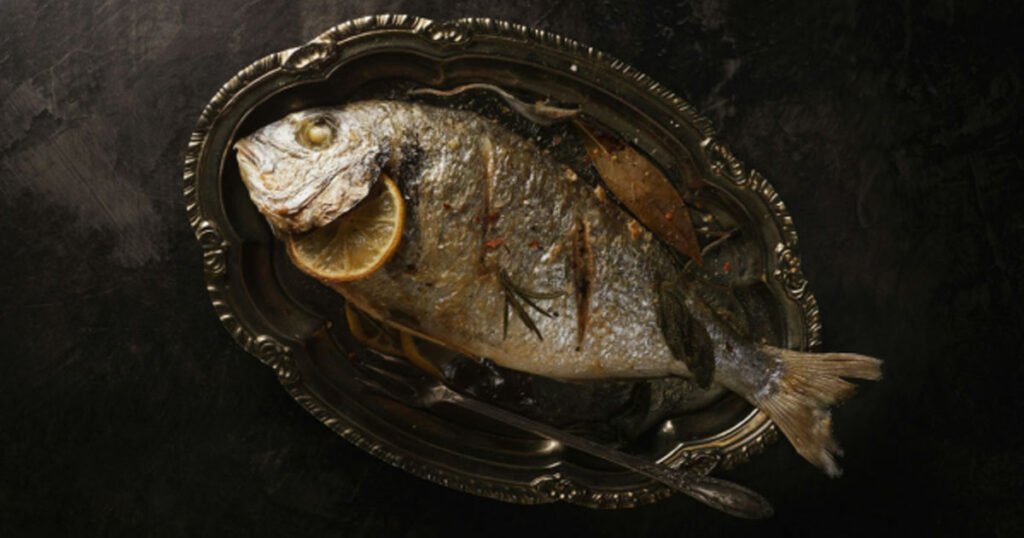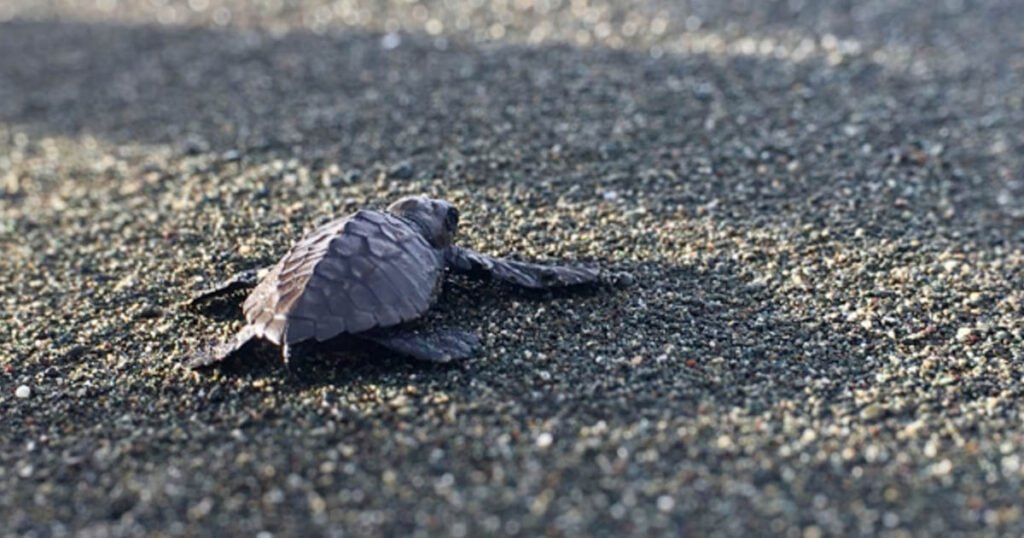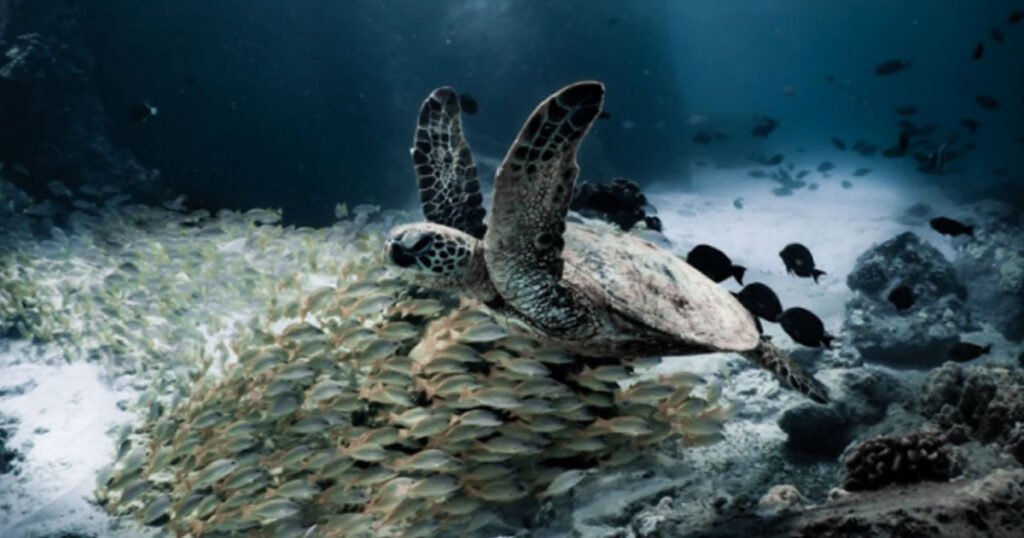Everyone knows that turtles will eat anything you give them. It doesn’t mean that everything is good for them, though. You should try to stay away from certain things as much as possible. So the question is, Can turtle eat fish food? Of course, but can they eat any kind of fish food or just one kind?
Turtles of different kinds may have different needs. For example, goldfish flakes are a good food for red-eared sliders. Some species, like the box turtle, may need something else, like worms, to meet their food needs.
This article will explain everything you need to know about can turtle eat fish food and how often they should do so to stay healthy!
Table of Contents
Can Turtle Eat Fish Food?

Yes, turtles can consume fish food. You may include it in their regular diet at least twice a week. It is always best to ask your local pet store about turtle food.
Don’t be concerned if none are available on the shelf! You can feed them fish flakes, which are easily available in grocery stores, supermarkets, and even online; just make sure it is turtle-safe food.
However, feeding fish to turtles can also be risky. The main cause of this could be poor water quality, which can swiftly deteriorate and harm your pet’s health. That includes giving them a bloated stomach or even constipation, both of which require veterinary assistance and may kill the animal.
Another explanation could be the fish food itself, which may contain hormones and antibiotics. This can definitely have a detrimental impact on your pet’s health! It is always best to ask the storekeeper if they can give you high-quality turtle food that will keep your aquatic companion healthy and happy.
Can Baby Turtles Eat Fish Food?

Feeding baby turtles requires special attention to their food needs for proper growth and development. While fish food may be easier for baby turtles to eat due to its small size, it’s important to consider the following factors:
- Nutritional Content: Baby turtles need food that supports their rapid growth. Commercially available baby turtle pellets or specific hatchling turtle food are better choices as they are formulated to meet the nutritional requirements of young turtles. These foods usually contain higher levels of essential nutrients necessary for their development.
- Protein and Calcium: Baby turtles, like their adult counterparts, require proper protein for growth and calcium for shell development. Specialized turtle food is more likely to provide the right mix of these nutrients compared to generic fish food.
- Avoiding Harmful Additives: Some fish foods may contain additives like hormones and antibiotics that can be harmful to the health of baby turtles. Choosing food specifically made for baby turtles reduces the risk of exposing them to perhaps harmful substances.
- Ease of Consumption: Ensure that the food is small enough for the baby turtle to consume easily. Smaller pellets or finely chopped vegetables may be more appropriate for their size.
When feeding baby turtles, it’s recommended to offer a diverse diet that includes a variety of foods such as small turtle pellets, finely chopped vegetables, and occasionally small amounts of live or freeze-dried insects.
Do Turtles Enjoy Fish Food?

Turtles might find fish food interesting and might even nibble on it, but it’s not the best main meal for them. Turtles have specific dietary needs, and their regular turtle food is specially made to provide them with the right nutrients for their health and growth.
While fish food can be given as an occasional treat, relying solely on it might not meet all the nutritional needs of a turtle. It’s like having a tasty snack once in a while, but you wouldn’t want to eat it for every meal. So, while turtles might enjoy the occasional taste of fish food, it’s important to provide them with a balanced diet that includes their specialized turtle food.
Are Turtles Allowed to Eat Goldfish?
Sure! Turtles normally eat special turtle food because it has all the nutrients they need to stay healthy. Goldfish food is not the best choice for turtles because it might not have everything they require. Turtles need a balanced meal with vitamins and minerals to grow properly.
Imagine if you only ate candy every day – you might enjoy it, but you wouldn’t stay fit. It’s the same for turtles. They need the right food to keep their shells strong and their bodies in good shape.
So, to ensure your turtle stays happy and healthy, it’s best to feed them the food made just for them. That way, they get all the yummy and healthy stuff they need
How Frequently Should Adult and Baby Turtles Be Fed Fish Food?
Feeding regularity for turtles, whether they are adults or babies, can depend on their age, species, and individual needs. Here are some general guidelines:
Adult Turtles:
- Adult turtles are usually fed every other day or 2-3 times a week.
- Some bigger species may eat less frequently, while smaller species might need more frequent feeding.
Baby Turtles:
- Baby turtles usually need to be fed more often than adults. They may require daily feeding or every other day.
- As they grow, you can gradually decrease the frequency and adjust their diet properly.
Pellets vs. Live/Fresh Foods:
- Commercial turtle pellets provide a balanced meal and can be a staple in their nutrition.
- Offering a variety of live or fresh foods like insects, earthworms, leafy greens, and small fish can provide extra nutrients and enrichment.
Monitoring Health:
- Pay attention to your turtle’s behavior, weight, and general health. Adjust the feeding plan if needed.
- Overfeeding can lead to fat and other health issues, so it’s crucial not to offer excessive amounts of food.
Species-Specific Guidelines:
- Different turtle species may have specific dietary needs. Research the unique needs of your turtle’s species for more accurate feeding guidelines.
What Are the Benefits of Eating Fish Food For Turtles?
While turtles might find fish food interesting and may nibble on it, Turtles have specific dietary requirements, and their regular turtle food is made to meet these needs. However, if we consider the occasional consumption of fish food as a treat or supplement, there are limited potential benefits:
- Variety in Diet: Offering fish food can add variety to the turtle’s diet, making mealtime more interesting for them.
- Source of Protein: Fish food usually contains proteins, which are essential for muscle development and overall growth. However, it’s crucial to ensure that the protein content is good for turtles and doesn’t exceed their dietary requirements.
Despite these potential benefits, it’s crucial to be cautious about relying on fish food as the main source of nutrition for turtles. A well-balanced and specialized turtle diet is necessary to provide the essential nutrients, vitamins, and minerals needed for their general health and well-being.
Negative Effects of Eating Fish Food Turtles
While turtles may show interest in fish food and may occasionally eat it, there are potentially harmful effects associated with using fish food as a main or frequent source of nutrition for turtles:
- Nutritional Imbalance: Fish food may not provide all the necessary nutrients, vitamins, and minerals that turtles need for proper growth and development. Depending solely on fish food may lead to nutritional imbalances, which can negatively affect the turtle’s health.
- Digestive Issues: Fish food may not be easily digested for turtles. Regular consumption can lead to digestive problems such as bloating, constipation, or diarrhea. These issues can impact the turtle’s general well-being and may require veterinary attention.
- Water Quality Concerns: Fish food can add to water pollution in the turtle’s habitat. Uneaten food can break down and compromise water quality, leading to health problems for the turtle. It’s important to keep clean and clear water to support the turtle’s health.
- Hormones and Antibiotics: Some commercial fish foods may contain additives like hormones and antibiotics. Continuous exposure to these chemicals can negatively affect the turtle’s health and may lead to long-term issues.
- Inadequate Shell Growth: Turtles require specific nutrients, such as calcium, for proper shell growth. Fish food may lack these essential components, possibly hindering the turtle’s shell growth and integrity.
To ensure the well-being of pet turtles, it’s recommended to provide balanced and species-appropriate food. Specialized turtle pellets or a variety of fresh and leafy greens, along with occasional treats like small bits of fruits or insects, are ideal for meeting their nutritional requirements.
Alternatives to Fish Food for Turtles
There are several options to fish food that are more suitable for the nutritional needs of turtles. Here are some options:
- Commercial Turtle Pellets: Specially formulated turtle pellets are designed to provide a balanced and complete diet for turtles. They normally contain the essential nutrients, vitamins, and minerals needed for proper growth and development.
- Fresh Vegetables: Turtles often enjoy different kinds of fresh vegetables. Offer leafy greens like kale, collard greens, and spinach. Other veggies like carrots, bell peppers, and squash can also be included in their diet. Ensure that the veggies are finely chopped or shredded for easy consumption.
- Live or Freeze-Dried Insects: Turtles can benefit from the protein found in live or freeze-dried insects such as mealworms, crickets, or earthworms. These can be offered as special treats.
- Feeder Fish (In Moderation): While fish food may not be ideal, some turtles enjoy live feeder fish as an occasional source of protein. However, it’s important to be cautious with this choice due to the potential health risks associated with certain types of feeder fish and their nutritional content.
- Fruits (In Moderation): Turtles can be given small amounts of fruits such as strawberries, blueberries, and melons as rare treats. These should not be the main part of their diet due to the sugar content.
- Supplements: Calcium and supplements can be added to ensure that turtles receive all the necessary nutrients. However, it’s crucial to follow suggested dosage guidelines to avoid over-supplementation.
Always remember to provide a well-balanced meal, and variety is key. Consult with a reptile veterinarian or an expert to tailor the diet to your particular type of turtle, considering factors like age, species, and health condition.
Read More: Can Turtles Eat Apples
Conclusion
So we now know the answer to the question: Can a turtle eat fish food? Turtles can consume fish food, but it should not be their main source of nutrition. While fish meal may include certain nutrients, it lacks the variety and balance that turtles require for good health.
